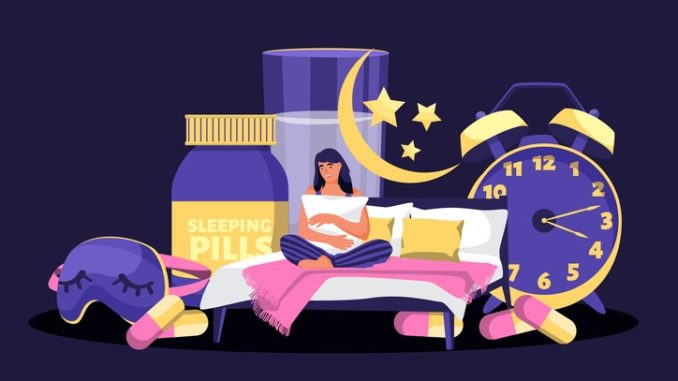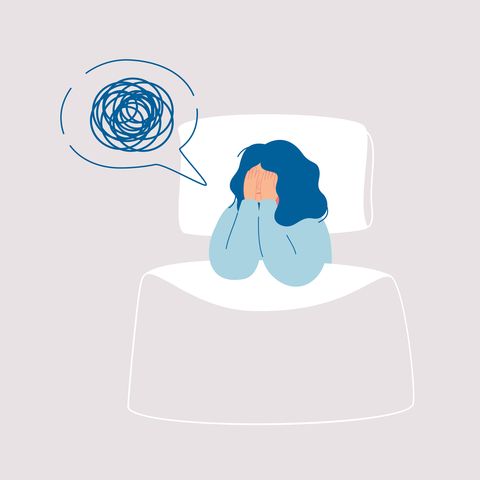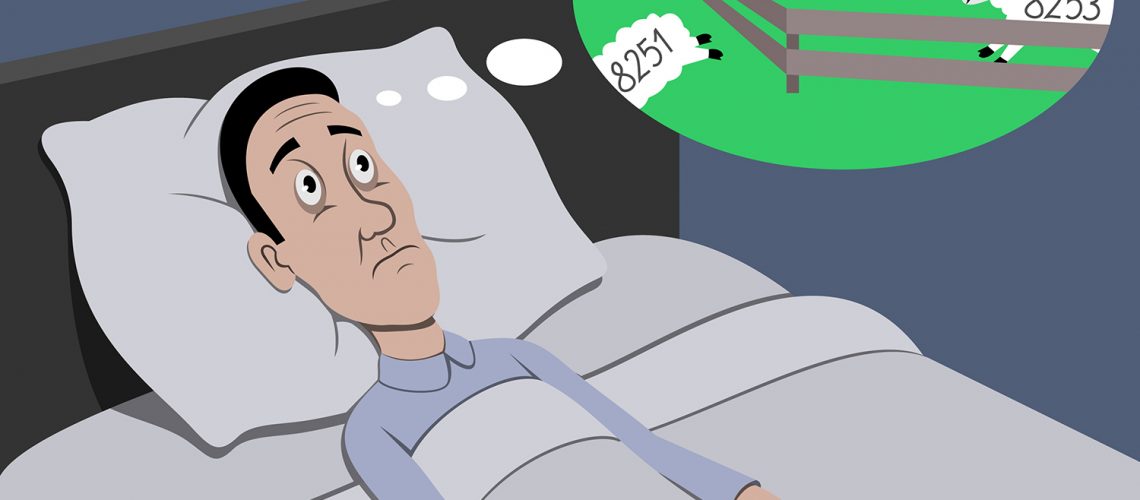
You toss. You turn. You stare at the clock and count down the minutes, but sleep still eludes you. There’s a good chance you’re dealing with insomnia, which affects 40 million people each year.
The idea that everyone needs eight hours of sleep is an old wives’ tale, but you do need to protect your personal sleep quota, whether that’s six hours or nine, It’s such an important part of your health.
The types of insomnia

Insomnia is a sleep disorder that affects your quality of life. For some, insomnia makes it hard to fall asleep. Others go to sleep quickly but can’t stay that way. And some fall asleep, but not deep enough for good quality rest.
The type of insomnia you have is based on how long you’re affected by it:
- Acute insomnia typically doesn’t last long and often comes with big life changes.
- Chronic insomnia generally lasts longer than three months and may need treatment.
Most people experience acute insomnia. It’s more common in women than men and more common in people over age 65. But many don’t know they have it, which is why it often goes un-diagnosed and untreated.
The causes of insomnia

Everyone experiences trouble falling or staying asleep at some point in their lives. Work, family and constant access to technology often prevent people from getting enough sleep. Other culprits include:
- Changes in environment or work schedule.
- Disrupted sleep schedule.
- Significant stress, anxiety or depression.
- Illness.
- Medications.
- Medical conditions.
- Physical discomfort.
The symptoms of insomnia

While acute insomnia often resolves on its own, chronic insomnia usually needs treatment. How do you know if it’s chronic? It’s the rule of threes: If your sleep problems happen more than three times a week and last more than three months, you may have chronic insomnia.
People with chronic insomnia also experience daytime symptoms, including:
- Feeling tired or fatigued.
- Irritability or a depressed mood.
- Problems with concentration or memory.
Losing your sleep battle can affect every part of your life. It can spill into your day as you struggle with fatigue and decreased attention. It’s also associated with conditions such as depression, bipolar disorder and substance use disorder. Eventually, it can lead to heart disease, depression and injury from falls or other accidents.
Tips for taking sleep aids

If you have a string of wakeful nights, you may want to talk to your doctor about trying an over-the-counter sleep aid. “Sleep aids work by activating the sleep centers in the brain and turning off the wake centers. People start to think they must reach for something to get sleep at night. When that happens, medication can turn an acute case into a chronic one.”
This option is not recommended e.g. Benadryl® or alcohol. While they seem to help, they don’t enhance the quality of your sleep. Even the short-term relief that comes with taking prescriptions like Ambien® may not outweigh the long-term risks of dependency.
But be sure to talk to your doctor if your sleep aid doesn’t work, does more harm than good or you’re concerned about ongoing insomnia and other symptoms.
To use sleep aids safely, follow these tips.
Allow enough time for a full night’s sleep

“Most sleep aids recommend that you devote a full eight hours to sleep, so make sure you are sleeping enough. You want sleep aids to help you fall asleep, but not leave you groggy the next day.
When you first try a sleep aid, pick a night when you don’t have to wake up early, drive or make important decisions the next day. And be aware that taking a higher dose than you mean to or not getting enough rest can lead to excessive morning drowsiness. You could also potentially sleepwalk or “sleep”-talk on the phone or send emails and texts.
Sleep aids are designed to help you fall asleep and stay asleep longer, but they shouldn’t knock you out. If you have significant difficulty waking up in the morning, tell your doctor.
Watch for side effects
If you have a history of depression, sleep aids can temporarily make it worse. Headaches and nausea are also possible but not common.
The medications reduce anxiety and relax your muscles, so you’re more apt to feel drowsy or occasionally have abnormal thinking or hallucinations. It’s usually described as a clouded- or foggy-thought process, also known as sleep drunkenness.”
Only take pills for a short time
In most cases, you should only use sleep aids nightly for two to four weeks. If you need help for longer, only take it as needed a few nights a week.
“There aren’t many long-term studies, so we don’t know the effects of being on sleep aids for a long time. Some reports show memory and coordination impairment, but they have not been verified.
For older people, these effects can be especially dangerous since they’re already at a higher fall risk.
Don’t stop taking a sleep aid suddenly
Quitting cold turkey can cause rebound insomnia, three to four days of more severe insomnia than usual. You can even experience rebound insomnia after a brief use of sleep aids.
Whenever you want to stop a sleep aid medication gradually wean yourself off the medications over days or weeks. If you take a sleep aid nightly, for example, reduce the dose over a week or two. Repeat this pattern until you no longer need it. If you’re already on the lowest dose, first stop taking it one night a week, and then slowly eliminate additional nights.
Using Cognitive Behavior Therapy to fight insomnia
Using cognitive behavioral therapy for insomnia (CBT-i) is probably the most effective treatment for chronic insomnia. CBT-i requires some effort, but it’s proven to help people return to more normal sleep patterns. And bonus: Behavioral treatments are more effective and longer-lasting than sleep aids.
The goal of this ongoing therapy is to help you change your sleep-related thinking, habits, schedules and behaviors. For example, you may need to change your habit of using your bed for activities such as working on your laptop.
CBT-i also includes regular follow-up visits with a behavioral sleep medicine specialist. This therapist may:
- Have you keep a sleep diary
- Examine your sleep/wake habits to pinpoint the actions that are preventing you from sleeping soundly
- Educate you about sleep hygiene and relaxation techniques
